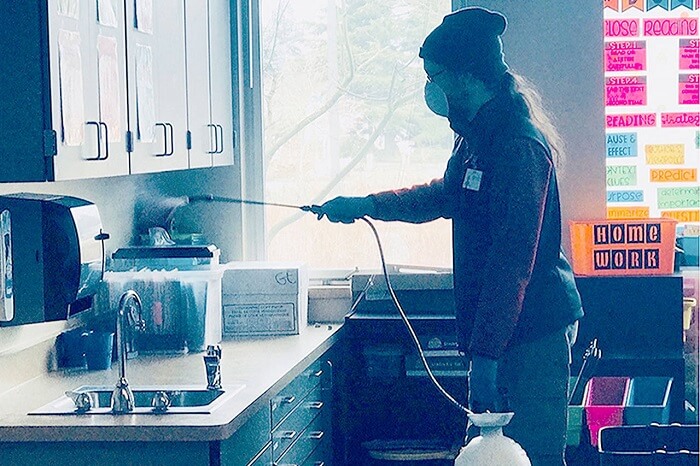There are a lot of coronavirus myths circulating the world that promptly needed to stop. We need to learn to separate the myths and reality when it comes to COVID-19. We have studied many health papers and listened to many interviews and podcasts of the medical experts that reveals actually a lot different from what we listen in the news or just on the social media. Here are some most lame Coronavirus myths that we should stop believing.
Lame Coronavirus Myths
The coronavirus and the infection it causes, COVID-19, has quickly spread to many countries all over the world. When the initial cases were reported in 2019 in Wuhan, China, it had not been detected before, making it a novel virus. So far, the coronavirus has affected almost 90,000 people, killing more than 3,000, according to some reliable sources.
But how concerned you should be and what are your chances of getting the coronavirus? Here come all of the myths. There are numerous of mixed information and lots of misconceptions encircling the hows, whys, and whats of the coronavirus. So here is what medical experts say about the coronavirus myths. Also learn causes, symptoms, and treatments of coronavirus.
Coronavirus is the most deadly virus
Many other viruses have a greater fatality rate than the coronavirus. Even the flu is considered to be more vulnerable because there is even a big number of people that get infected by it every year. According to the CDC, this flu season from October 2019 to February 2020 alone has seen 26 to 36 million people infected; with a quarter to half a million people getting hospitalized and 14 thousand to 36 thousand mortalities from influenza virus.
While the coronavirus is so far seems to have 1 to 2 percent fatality rate with severe infections and people with weak immunity system. However, WHO and other health organizations advises it’s still important trying to control the virus so that fewer people get infected.
Coronavirus is caused by bat soup
There is no proof to confirm this rumor, according to medical specialists. Coronavirus can indeed be found in bats. Though, it comes from animal-to-person spread in the wet market (seafood- and meat-selling market) in Wuhan with many other animal species. There are various thoughts, but the virus originating from bat soup person has not been authenticated.
This misconception got its commencement from a 2016 video of a vlogger girl eating bat soup, which was recirculated after the coronavirus outbreak, provoking outrage. While in real, the video was not actually filmed in Wuhan.
Wearing masks can protect from coronavirus
Several types of proficient, tight-fitting respirators (such as the N95) can protect health care workers as they attend affected cases, but ordinary, disposable surgical masks don’t work so great when it comes to defending from the virus.
They may give some protection from big drops, sprays or sprinkles, but because they don’t fit precisely, they may leave small infected droplets to get into the nose, mouth or eyes.
Medication can treat coronavirus
Now here, one thing is important to remember that all viruses, including the flu, cannot be treated with antibiotics and the coronavirus is no different. Furthermore, none of the antivirals that are for attending other viral diseases work for the coronavirus.
What goes well for common cold symptoms and moderate viruses is taking lots of fluids, relaxing and staying at home so that your colleagues and neighbors don’t get infected from you.
Spraying yourself with alcohol and sanitizers can prevent coronavirus
Some people think that by spraying themselves with sanitizing products can assist to protect them from the coronavirus. This is actually wrong. The coronavirus penetrates the body through mucous membranes like the mouth and nostrils, so sprinkling your body with alcohol, chlorine, or other surface sanitizers will not stop viruses.
While these products can be powerful means to sterilize surfaces and stop transmission of viruses.
Buying products from other countries can make you sick
Many medical teams are researching on the new coronavirus to discover more about how it affects people. Most viruses, like this one, are incapable to stay alive on surfaces for a long time. It is not convincing that you would get COVID-19 from a package that was in transportation for days or weeks.
The disease is most probably spread by droplets from an infected person’s sneeze or cough, but more details are appearing daily.
You should not travel while coronavirus outbreak
While the CDC has published guidelines for travelling to China, as well as many other countries, there is no flying ban of sorts for areas that are comparatively untouched by the coronavirus. In fact, the WHO advises against travel prohibitions, seeing that they tend to be incompetent when it comes to controlling outbreaks.
Though, you should follow the travel warnings. It is important for travelers who are ill to delay or stop flying to infected zones, in distinct for old travelers and people with chronic diseases or facing health disorders.
It’s necessary to remain careful of cleanliness. Cover your mouth when coughing or sneezing and wash your hands regularly to stop the spread of disease to others.













































